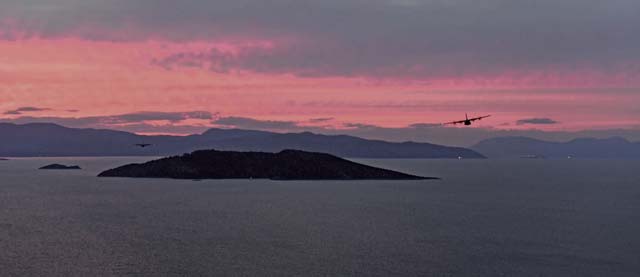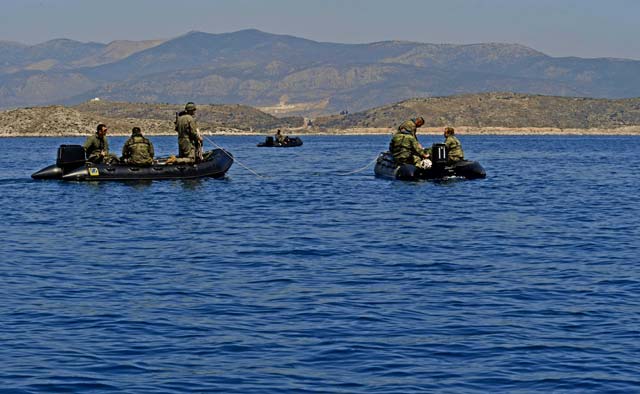
ELEFSIS AIR BASE, Greece — Approximately 100 Airmen and three C-130J Super Hercules aircraft from the 86th Airlift Wing’s 37th Airlift Squadron participated in a bilateral training deployment, Exercise Stolen Cerberus IV, with the Hellenic air force and U.S. Army at Elefsis, Greece, from April 18 to April 28.
“I’d say it’s been wildly successful,” said Capt. Ryan Brooks, 37 AS mission commander for the exercise. “We’ve been working with our Greek partners as much as possible. We’ve done a myriad of drops and achieved a lot of training for the 37 AS as well.”
Throughout the combined forces training, Greek armed forces and U.S. service members worked alongside each other and learned how each group operates. They collaborated on techniques for static-line and military free fall paratroopers, high-velocity container-delivery systems, heavy-equipment airdrops, low-cost low-altitude bundles, and sea-rescue kit drops.
“The reason why we come here is to get additional training that’s not readily available at Ramstein,” said Senior Master Sgt. Christopher Minnifield, 37 AS readiness superintendent and ramp coordinator for the exercise. “Being able to come here to Greece gives us an opportunity to get that additional training to sharpen our skills.”
The training mission brought U.S. and Greek military forces together to build upon and strengthen the bonds shared between the two countries, while continuing to improve interoperability as Greece and the U.S. continue to work together in operations worldwide.
“Participating in this exercise is extremely important,” Brooks said. “It integrates both countries and their abilities. It increases the Greek ability to work with the U.S. as a partner and ally and provides a tactile ability they can see and feel for future operations by allowing them to work with us face to face.”
The United States and Greece, as NATO allies, share a commitment to promote peace and stability, and seek opportunities to continue developing their strong relationship.
“It’s been great working with the Hellenic air force,” Brooks said. “They’re always extremely supportive, they’re here to provide us anything we need, and allow us to train to a specific mission set.”
Combined exercises such as these enhance the interoperability capabilities and skills among allied and partner armed forces, and provide an opportunity for the Airmen to learn a myriad of new skills.
“I think they grasp the concept of air power from this exercise,” Minnifield said. “The key to air power is flexibility. On any given day you can face challenges that could potentially delay a mission. Remaining flexible and realizing there’s a solution to any problem is the key. We need to focus on what our job is and find ways to get it done.”
The transatlantic strategic relationship between the U.S. and Europe has been forged over the past seven decades, and it is built on a foundation of shared values, experiences, and vision.
“The value of relationships is basically what I’ve learned here,” Minnifield said. “The relationships you establish with Greek partners and the people you work with on a day-to-day basis, those relationships are what take you through the tough times you may face.”
This is the fourth iteration in as many years of Stolen Cerberus out of Elefsis, further strengthening the U.S. and Greek partnership.
“I hope we continue to come down here to get excellent training and continue this partnership with the Greeks to move forward and become better,” Brooks said.
Through forward training deployment exercises held all across Europe with NATO allies, Ramstein Airmen continue to forge bonds and strengthen their skills.



